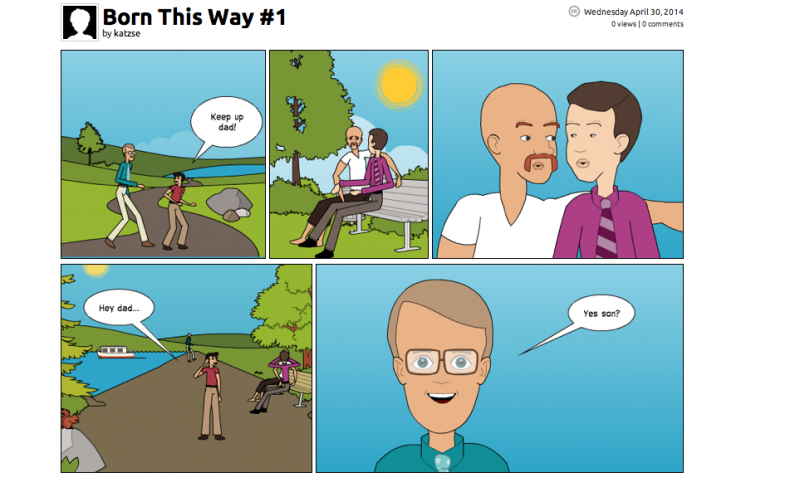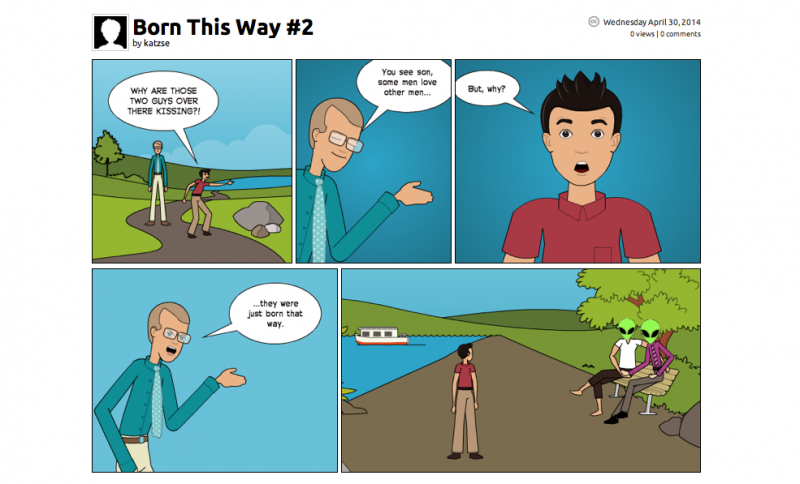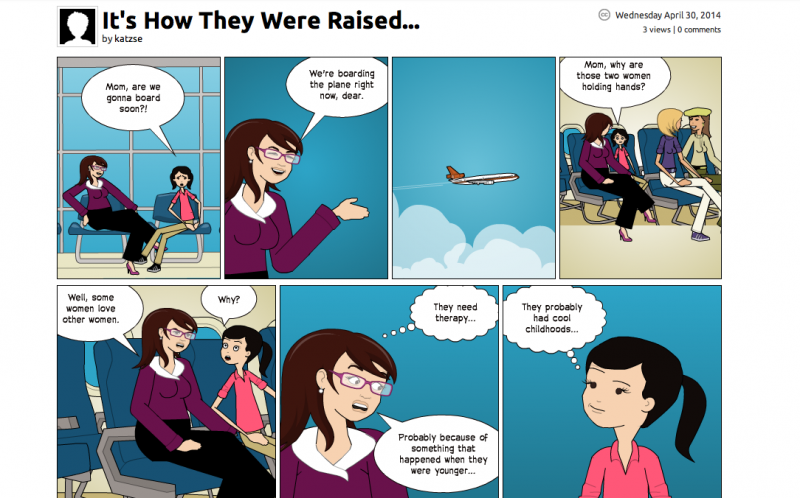A Fall 2013 student made these short comics (using Pixton) to illustrate some of the unexpected consequences of two common beliefs about the origins of sexual orientation. Because the comics are responding to a larger conversation about nature vs. nurture, I’ve provided some context before each of them.
Nature
Since the early 2000’s, LGBT activists have taken up the strategy of arguing that sexual orientation is an inborn trait, that we’re “born that way,” as this seems to be particularly persuasive to those who believe we should grant rights to those who “can’t help it.”
But this strategy also has a downside, in that it can lead some to conclude that deviations from the “norm” of heterosexuality are essentially like “birth defects” or anomalies of nature. Some have even suggested that if a “gay gene” is ever found, it may lead some Christian conservatives to justify abortion only in the case of fetuses carrying the gene. This position was also popular over a hundred years ago, but its supporters used it to justify trying to weed the tendency out of the population.
In the “Born that Way” comic, we see a father sharing his belief in the “nature” position with his son, in a manner that’s meant to encourage the son to view the gay men in a positive light. But then we see that the son has internalized the idea that “born that way” might mean the men are fundamentally different types of creatures, even aliens.
Nurture
While the “socialization” position is not currently in favor by most LGBT activists, it remains the preferred position of most gender and queer theorists, who study the ways society and personal interactions shape our ideas about sexual orientation. In their view, it’s not that society “causes” some people to become lesbian, gay, bi, or trans, but rather that society reinforces the idea that heterosexuality is the norm and anything else is a deviation.
But this position has also has a downside, which was first suggested by Freud and still pops up from time to time. That downside is that if people are gay due to social forces, then some kind of intervention (i.e., better parenting) or treatment (i.e., therapy) should be able to redirect them to a “normal” sexual orientation towards the opposite sex.
In the “Nurture” comic, we see a mother sharing her belief in the “nurture” position with her daughter. But the mother clearly thinks that something must’ve gone wrong in the two women’s childhood, while the daughter thinks something must’ve gone well.



